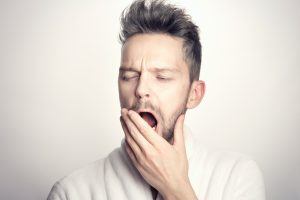
Your oral health can have a significant impact on your overall health, including the quality of your sleep. Teeth can impact your sleep in many different ways. In fact, people who have dental problems such as tooth pain, gum disease, or sleep apnea may experience difficulty sleeping, insomnia, and other sleep-related issues.
Teeth Grinding Impact on Sleep
One common condition that can impact your sleep is bruxism, also known as teeth grinding. Bruxism is a condition in which a person grinds or clenches their teeth, usually during sleep. It can cause tooth pain, headaches, and jaw pain, as well as wear and tear on the teeth. People who grind their teeth may also experience insomnia and daytime fatigue as a result of disrupted sleep.
Sleep Apnea Impact on Sleep
Another dental condition that can impact your sleep is sleep apnea. This is a disorder in which a person’s breathing is repeatedly interrupted during sleep, often causing them to wake up multiple times throughout the night.
Sleep apnea can lead to daytime fatigue, irritability, and a higher risk of accidents, as well as long-term health problems such as heart disease, stroke, and diabetes. People with sleep apnea may also be at risk for developing bruxism, as the constant interruptions of sleep can lead to increased muscle tension in the jaw.
Tooth Pain Impact on Sleep
Tooth pain is also one of the main causes of sleep disruption. Toothaches, cavities, abscesses, and other oral health issues can cause pain and discomfort that makes it difficult to fall asleep or stay asleep. People with tooth pain may also experience difficulty sleeping due to the constant discomfort they feel.
Additionally, people with a history of dental issues, specially Gum disease and tooth loss, may also experience jaw pain, which can make it hard to get comfortable and fall asleep.
Dry Mouth Impact on Sleep
Another issue that may impact your sleep is dry mouth, which is a condition characterized by a lack of saliva flow. Dry mouth can cause discomfort, bad breath, and an increased risk of tooth decay. People with dry mouth may also experience difficulty sleeping due to the discomfort it causes in the mouth.
Solving the Issues
It is important to address these dental issues in order to improve the quality of your sleep. For example, people with bruxism may benefit from a mouth guard or splint, which is worn at night to prevent teeth grinding and clenching. People with sleep apnea may benefit from a CPAP (continuous positive airway pressure) machine, which delivers air pressure through a mask worn over the nose or mouth to help keep the airways open during sleep. And people with tooth pain may benefit from dental treatment, such as a filling or root canal, to alleviate the pain.
Proper oral hygiene is also important for maintaining healthy sleep. Brushing and flossing your teeth at least twice a day, as well as visiting your dentist regularly, can help prevent the development of dental problems that can impact your sleep.
It is also important to understand the link between oral health and overall health. Those who suffer from medical conditions such as diabetes or acid reflux may be at a higher risk for dental problems that can impact sleep. Maintaining a healthy lifestyle through diet and exercise can help improve oral health and subsequently improve the quality of sleep.
Nightlase Therapy
Nightlase is a treatment that uses laser therapy to target and reduce snoring and mild to moderate obstructive sleep apnea (OSA). The therapy works by using a laser to gently heat and stimulate the tissues in the back of the throat, which can help to increase muscle tone and reduce the vibration that causes snoring. This can lead to a reduction in the severity of snoring, and in some cases, a complete elimination of snoring.
NightLase treatment is non-invasive, pain-free and has no side effects, it is effective for those who are looking to improve the quality of their sleep. For those who suffer from mild to moderate OSA and snoring, Nightlase therapy can be a great alternative to more invasive treatments such as CPAP or surgery, as it can provide a significant improvement in sleep quality without the need for any special equipment or ongoing maintenance. Additionally, it has been reported that NightLase therapy can also improve quality of life, by reducing daytime fatigue and improving overall mood.
Conclusion
Your oral health can have a significant impact on your sleep. Dental problems such as bruxism, sleep apnea, tooth pain, gum disease and dry mouth can cause sleep disruptions, insomnia, and daytime fatigue.
It is important to address these issues in order to improve the quality of your sleep. This can include getting proper dental treatment, practicing good oral hygiene, addressing underlying medical conditions, and being aware of the side effects of any medications.
By taking care of your oral health and addressing any issues, you can help ensure that you’re getting the restful and restorative sleep that you need to maintain overall health and well-being.
It’s also important to consult with a dentist or sleep specialist if you suspect that you have a dental issue that is impacting your sleep. They can provide an accurate diagnosis and create a treatment plan tailored to your specific needs. Taking care of your oral health is an important step towards a better night’s sleep and overall well-being.

